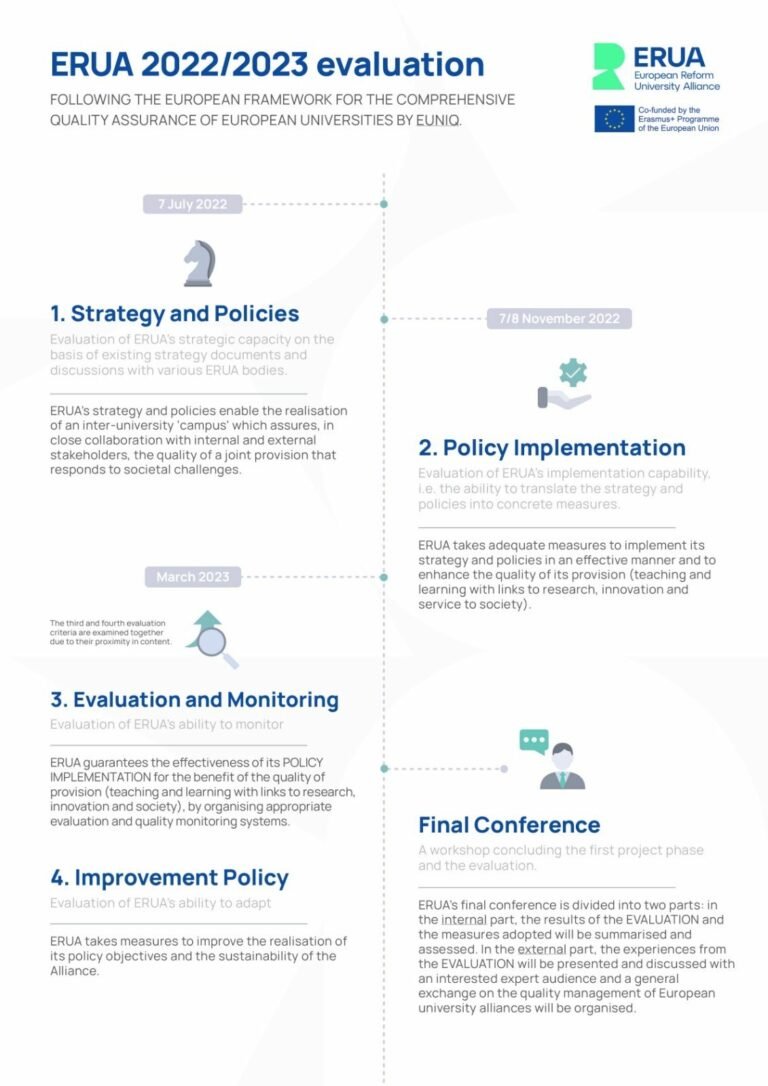In November 2020, the European Reform University Alliance (ERUA) was launched as part of the European University Initiative. In addition to the University of Konstanz, the founding members are the New Bulgarian University, Roskilde University, University Paris 8 (coordination) and the University of the Aegean. The University of Konstanz is responsible for quality assurance in Alliance and, among other things, carries out an internal cumulative evaluation with external participation. Building on elements of the self-evaluation, four evaluation criteria are examined step by step by external evaluators.
Contents and objectives
The object of evaluation is ERUA’s governance, i.e. its internal structures, processes and performance. In a staged approach, ERUA’s capacity for strategy formulation, implementation, monitoring and adaptation is examined. The aim is to identify weaknesses and strengths in these areas so that the Alliance can develop appropriate measures to improve its governance. This will also serve to prepare for the next funding phase, which is scheduled to start in November 2023.
Procedure
The evaluation concept follows the content of the European Framework for the Comprehensive Quality Assurance of European Universities by EUNIQ. This concept provides for the evaluation dimensions (1) strategy and policies, (2) policy implementation, (3) evaluation and monitoring and (4) improvement policy.
In contrast to the EUNIQ concept, ERUA conducts a cumulative evaluation. The four criteria are therefore examined with several months between the individual steps. This allows the evaluators to include the reactions to their recommendations in their assessment, so that there is a self-reinforcing effect of the evaluation.

